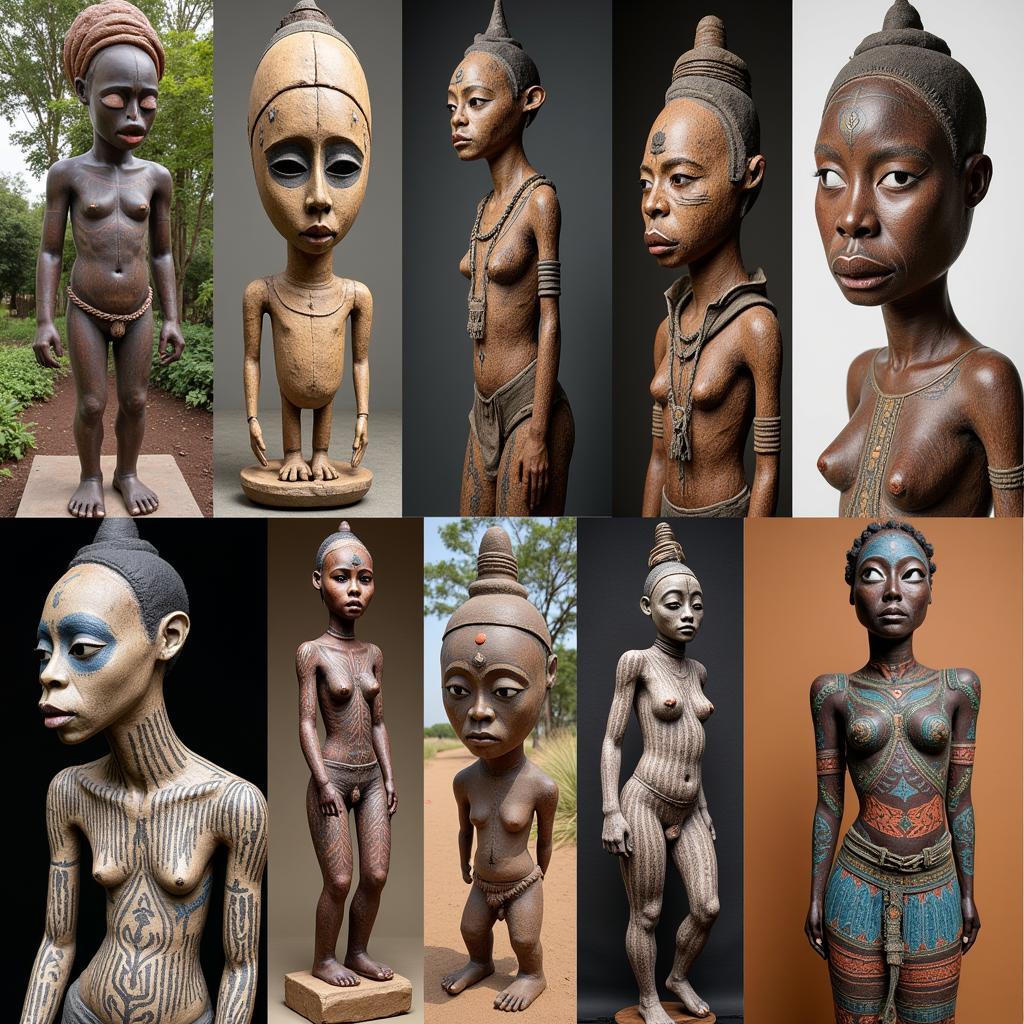African Drinking Water: A Source of Life and Challenge
Access to safe and clean African Drinking Water remains a significant challenge across many parts of the continent. From arid deserts to lush rainforests, the availability and quality of water drastically shape daily life, impacting health, economic opportunities, and societal structures. Understanding the complexities surrounding this vital resource is crucial for developing sustainable solutions and ensuring a healthier future for all Africans.
Clean drinking water is not just a necessity; it’s a fundamental human right. Yet, millions across Africa still lack reliable access to this essential resource. This lack of access has far-reaching consequences, affecting not only individual health but also economic development and social stability. The story of african drinking water is a complex tapestry woven with challenges and opportunities, demanding innovative solutions and global collaboration. We delve into the heart of this issue, exploring the diverse realities and seeking pathways towards a future where clean water flows freely for all.
The Reality of African Drinking Water Sources
The sources of drinking water across Africa are as diverse as the continent itself. In rural areas, many communities rely on traditional wells, boreholes, springs, and rivers. These sources, while often vital, can be susceptible to contamination from agricultural runoff, human waste, and industrial pollution. This contamination poses serious health risks, particularly to children and vulnerable populations. In urban areas, piped water systems are more common, but even these can be unreliable due to aging infrastructure, inadequate maintenance, and intermittent supply. In some arid regions, people depend on rainwater harvesting, a practice that requires careful management and storage to ensure water safety throughout the year. This reliance on diverse, often precarious, water sources highlights the urgent need for improved water infrastructure and management strategies. Access to safe african drinking water remains a critical concern across the continent.
The Impact of Water Scarcity on African Communities
Water scarcity profoundly impacts African communities in myriad ways. Lack of access to clean african drinking water leads to waterborne diseases, which disproportionately affect children under five. These illnesses not only cause suffering but also strain healthcare systems and hinder economic productivity. Women and girls often bear the brunt of water collection responsibilities, spending hours each day fetching water from distant sources. This burden limits their educational opportunities and economic potential. Water scarcity also exacerbates food insecurity, as agriculture depends heavily on reliable water supplies. Competition for scarce resources can further lead to social tensions and conflicts.
The scarcity of african drinking water also has significant implications for education, particularly for girls. As they are often responsible for fetching water, the long distances and time involved can lead to absenteeism or even dropping out of school entirely. This perpetuates a cycle of poverty and limits their future prospects.
Innovative Solutions for Clean African Drinking Water
Fortunately, innovative solutions are emerging to address the african drinking water crisis. Water purification technologies, such as solar-powered disinfection systems and ceramic filters, are becoming increasingly accessible and affordable. Rainwater harvesting techniques are being improved and promoted, offering sustainable solutions in water-stressed regions. Community-based water management programs are empowering local communities to take ownership of their water resources and ensure sustainable practices. Investment in water infrastructure, including the construction of dams, reservoirs, and pipelines, is also crucial for expanding access to clean water. Furthermore, research into drought-resistant crops and water-efficient irrigation methods is helping to improve agricultural productivity and reduce water consumption.
For example, the meme “african kid drinking dirty water” has raised awareness about this critical issue, prompting discussions and initiatives to improve access to safe drinking water. Understanding the behavioral adaptations of animals like the African desert lion can provide insights into how wildlife copes with water scarcity.
Working Towards a Water-Secure Future for Africa
Ensuring access to safe african drinking water for all requires a multi-faceted approach. Governments, NGOs, and international organizations must collaborate to implement sustainable water management strategies. Investing in research and development of new technologies is essential for finding innovative solutions tailored to Africa’s diverse needs. Educating communities about water conservation and hygiene practices is crucial for promoting responsible water use. By working together, we can create a water-secure future for Africa and empower communities to thrive. Access to clean african drinking water is not just a challenge, it is an opportunity to build a healthier, more prosperous future for the continent.
Conclusion
Access to clean african drinking water is not merely a developmental goal; it is a fundamental human right that underpins health, prosperity, and stability. The challenges are significant, but the opportunities for progress are equally real. Through innovation, collaboration, and a commitment to sustainable solutions, we can ensure that clean water flows freely for all Africans, unlocking their potential and paving the way for a brighter future.
FAQs
- What are the main sources of drinking water in Africa? Sources vary widely, including rivers, wells, boreholes, springs, rainwater harvesting, and piped systems.
- How does water scarcity impact African women and girls? They often bear the primary responsibility for water collection, limiting their education and economic opportunities.
- What are some innovative solutions for clean drinking water in Africa? Solutions include water purification technologies, rainwater harvesting, community-based water management, and infrastructure development.
- What are the main health risks associated with unsafe drinking water? Waterborne diseases, such as cholera, typhoid, and diarrhea, pose significant threats, especially to children.
- How can I contribute to improving access to clean water in Africa? Support organizations working on water projects, advocate for policy changes, and educate yourself and others about the issue.
- What are some of the challenges faced in providing clean water in remote areas? Challenges include logistical difficulties, lack of infrastructure, and the need for sustainable solutions adapted to local conditions.
- How does climate change affect water access in Africa? Climate change exacerbates water scarcity through increased droughts and changing rainfall patterns.
You might also be interested in:
- Exploring the “african desert lion” and their adaptation to arid environments.
- Learning fascinating “african animal facts for kids” to further your understanding of the continent’s diverse wildlife.
Call to action: For assistance or more information, please contact us at Phone: +255768904061, Email: kaka.mag@gmail.com or visit us at Mbarali DC Mawindi, Kangaga, Tanzania. Our customer service team is available 24/7.

